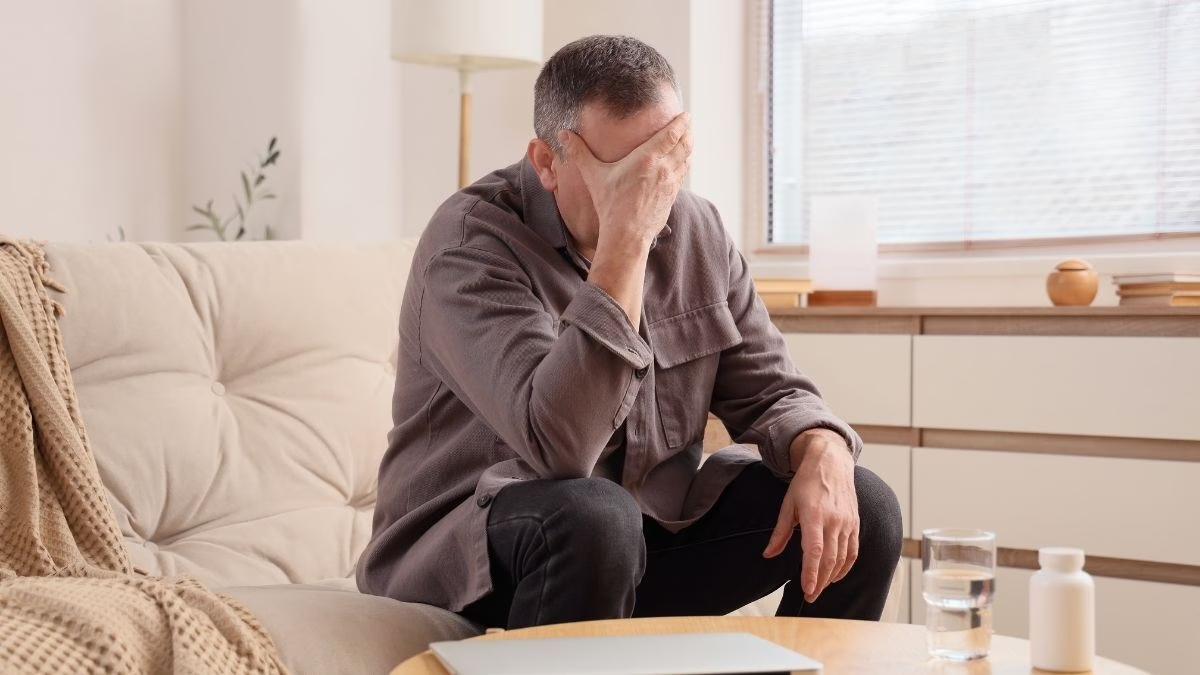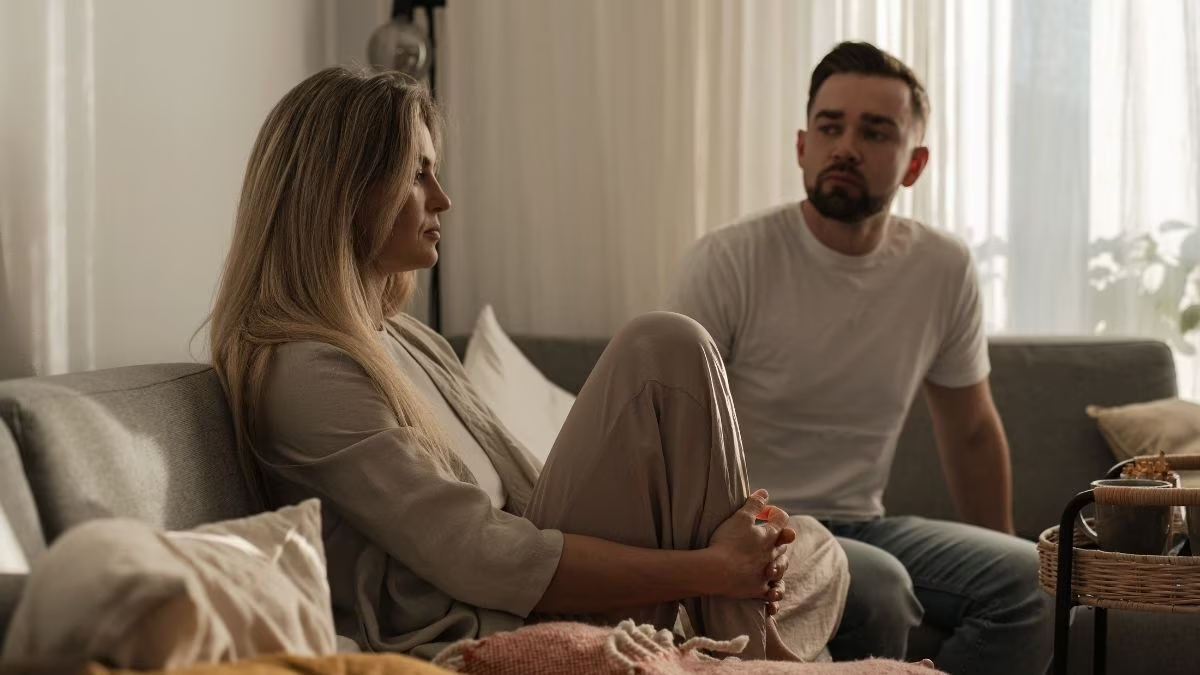oor communication in a relationship can show up in many ways — from stonewalling and passive-aggression to constant misunderstandings and silent tension. These breakdowns can feel like you're speaking different emotional languages or drifting apart without even realizing it.
Research shows that a lack of communication can impact not just emotional closeness, but physical health too — increasing stress and inflammation, and slowing healing. So if you're noticing the signs, it's worth addressing head-on.
Let’s explore how to fix lack of communication in a relationship so you can feel more connected, more understood, and more like a team again.
Ways to Fix Communication in a Relationship
Good communication is about understanding, connection, and emotional safety. When both partners feel heard and respected, even the toughest conversations become manageable. But when only one person is trying, the dynamic can feel one-sided or frustrating.
Here are some strategies that can help:
Use soft startups. Try gently opening the conversation with phrases like, “Is now a good time to talk?” instead of launching straight into heavy topics. If things feel tense, take a break and return when you're both calm.
Address stonewalling. If either of you shuts down during conflict, address it and agree on ways to restore emotional safety — like using “I” statements, taking breaks, or simply acknowledging when you're overwhelmed.
Avoid mind-reading. Don’t assume what your partner is thinking. Ask clarifying questions and check in regularly to stay on the same page.
Schedule check-ins. Weekly house meetings or 10-minute emotional catch-ups can keep small issues from snowballing and help celebrate what’s working.
Counter toxic habits. If one of you tends to interrupt or dismiss feelings, slow down. Focus on patience, listening reflectively, and staying emotionally present.
Embrace a “we” attitude. Use phrases like “We can figure this out together” instead of blame. Unity language reinforces that you’re a team.
Rebuilding Connection: Rituals, Quality Time & Emotional Safety
When communication breaks down, rebuilding emotional closeness starts with safety and small rituals. You don’t need grand romantic gestures — just consistent, meaningful moments that help you both feel seen and valued.
Create connection through rituals. Think: daily device-free meals, bedtime check-ins, a shared playlist. These small habits become anchors of emotional intimacy.
Share appreciation often. A simple “I really appreciated how you handled that” can go a long way toward softening tension and reinforcing connection.
Celebrate the small wins. Did you have a more open conversation? Did something feel easier than usual? Acknowledging those moments keeps motivation strong and reminds you both that progress is happening.
When to Seek Professional Help for a Communication Problem in a Relationship
Sometimes, even with effort, things stay stuck. If communication patterns are hurting your relationship or emotional well-being, it may be time to involve a therapist or counselor.
Therapy helps break toxic cycles. Whether you’re dealing with emotional distance, chronic conflict, or burnout, a professional can help identify what’s beneath the surface — and give you tools to shift the pattern.
You don’t have to hit rock bottom to get support. In fact, seeking help early is one of the healthiest things you can do for your relationship.
FAQs
How do I know if bad communication skills are affecting my relationship?
If conversations often end in frustration, feel one-sided, or lead to emotional shutdown, communication may be the root issue. Look for signs like recurring arguments, passive-aggression, or emotional distance.
What small steps can help fix lack of communication in a relationship?
Start with regular check-ins, use I-statements, and practice active listening. Even 10 minutes of focused conversation a day can rebuild connection.
How do I use “I feel” statements to communicate better in a relationship?
Lead with emotion, not accusation. For example: “I feel hurt when I’m left out of decisions” instead of “You never include me.”
What types of couples communication techniques are effective?
Several approaches can help couples communicate more effectively. A soft startup means beginning a conversation gently, such as asking, “Is now a good time to talk?” rather than diving straight into criticism. Reflective listening is another powerful tool, where you repeat back or summarize what your partner has said to show you truly understand. Therapists also often recommend the DEAR MAN script, a structured way to communicate needs that involves describing the situation, expressing your feelings, asserting your needs clearly, reinforcing the benefits of listening, staying mindful, appearing confident, and being willing to negotiate. Finally, many couples benefit from scheduling short “house meetings” or check-ins each week to discuss both practical matters and emotional needs. These techniques create a consistent rhythm of healthy dialogue and help both partners feel heard and respected.
What should I do if my partner consistently stonewalls me during discussions?
If your partner often shuts down during conflict, start by gently naming what you notice without blame. For example, you might say, “I see it’s hard for you to keep talking when things get heated—can we come up with a signal to pause and return later?” Establishing an agreed-upon break strategy, like taking 20 minutes apart to calm down, can create space for both of you to reset. You can also encourage emotional safety by reassuring your partner that you want to understand their perspective, not attack them. For instance, saying, “I want to hear how you’re feeling when you’re ready” shows that you’re prioritizing connection over winning an argument.
That said, stonewalling can sometimes be part of a larger pattern of control or emotional withdrawal. If you feel consistently dismissed, shut out, or unsafe, it may be important to bring in outside support, such as a trusted therapist or counselor, to help address the dynamic in a healthier way.
How can I support my partner to open up more emotionally and communicate better?
Show genuine curiosity, listen without judgment, and celebrate their efforts. Safe spaces lead to deeper sharing.
When should a couple consider seeking professional communication therapy?
A couple should consider seeking professional communication therapy if you’re stuck in the same arguments, or if emotional shutdowns are frequent, it’s time to seek support. A therapist can help you rebuild clarity, safety, and trust.






















